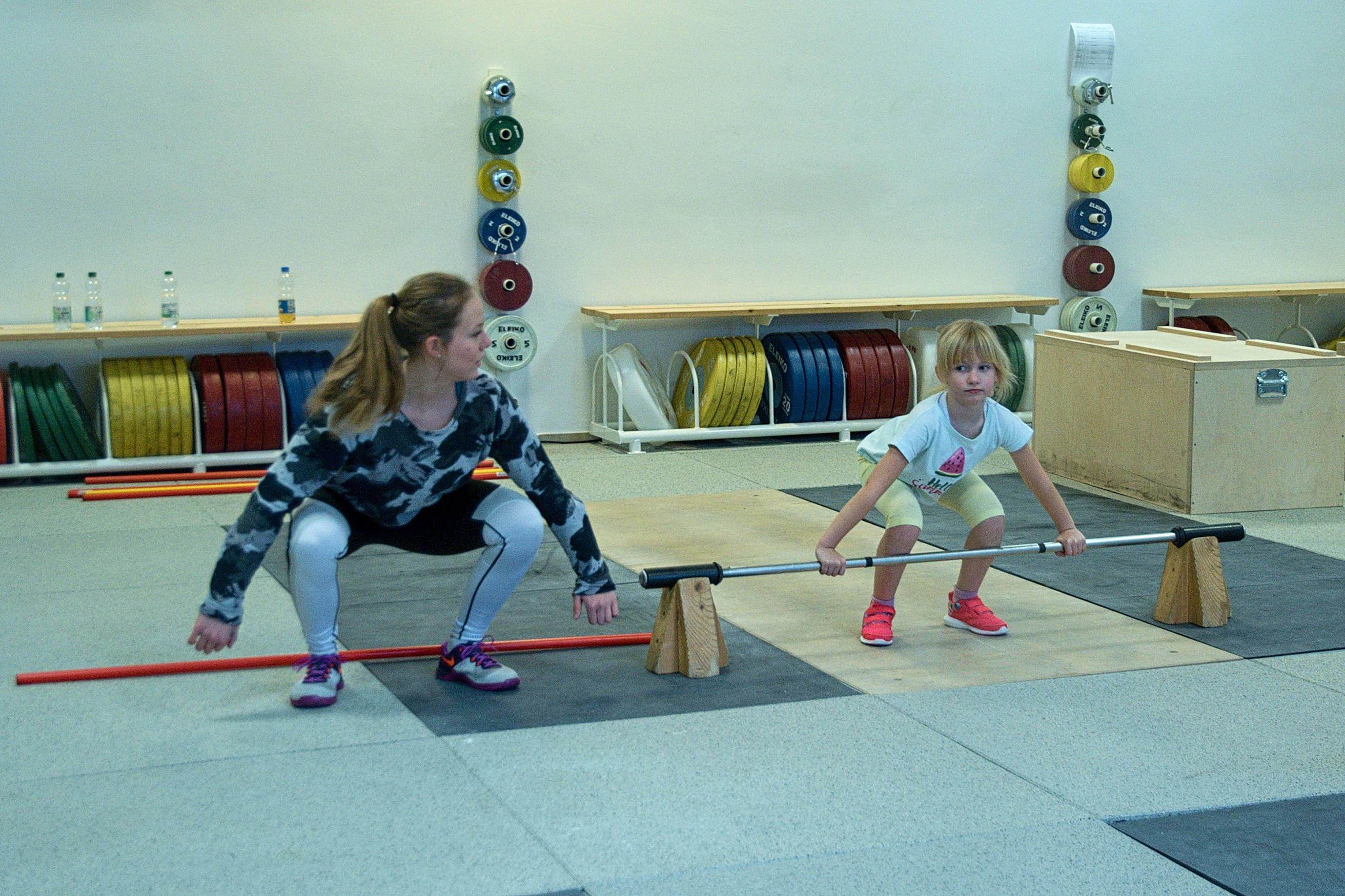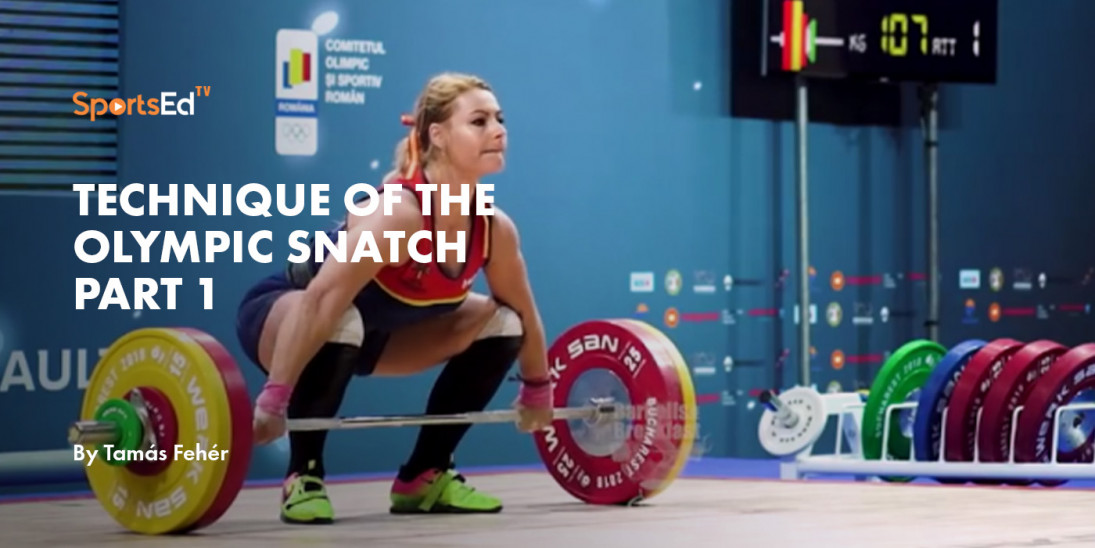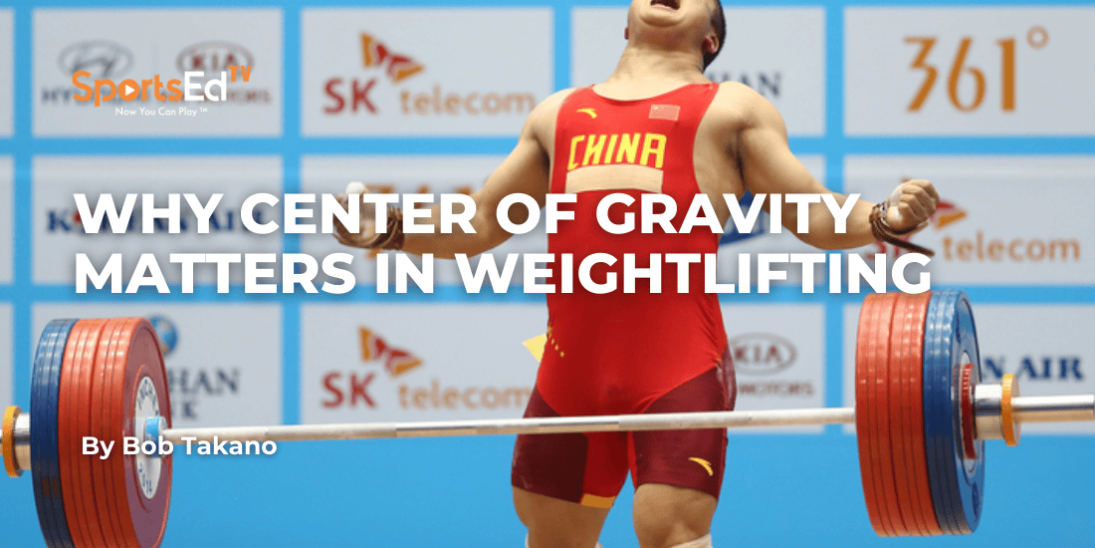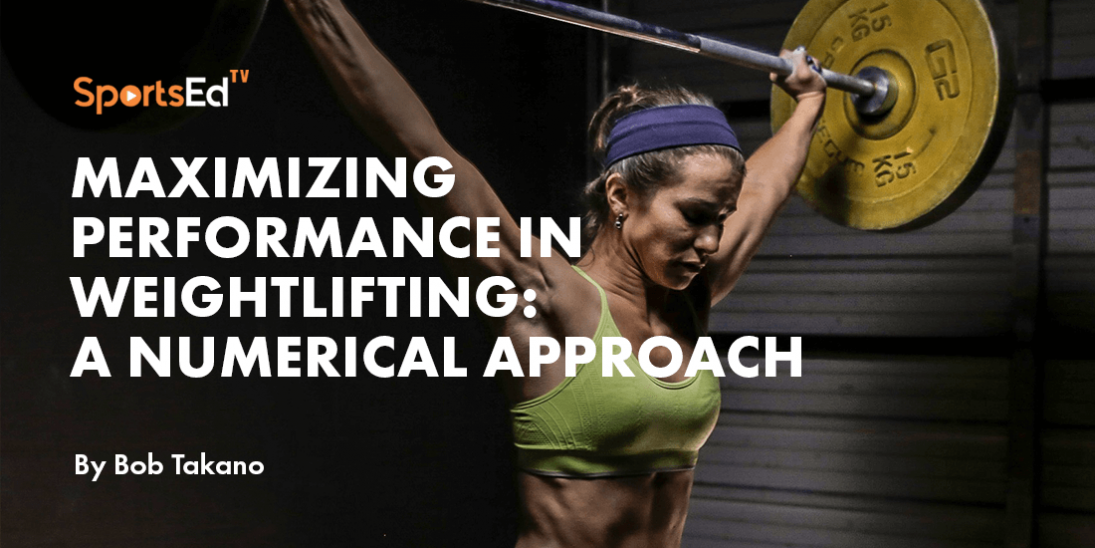Weightlifting
Welcome and thanks for visiting...

Weightlifting is a Mental Game
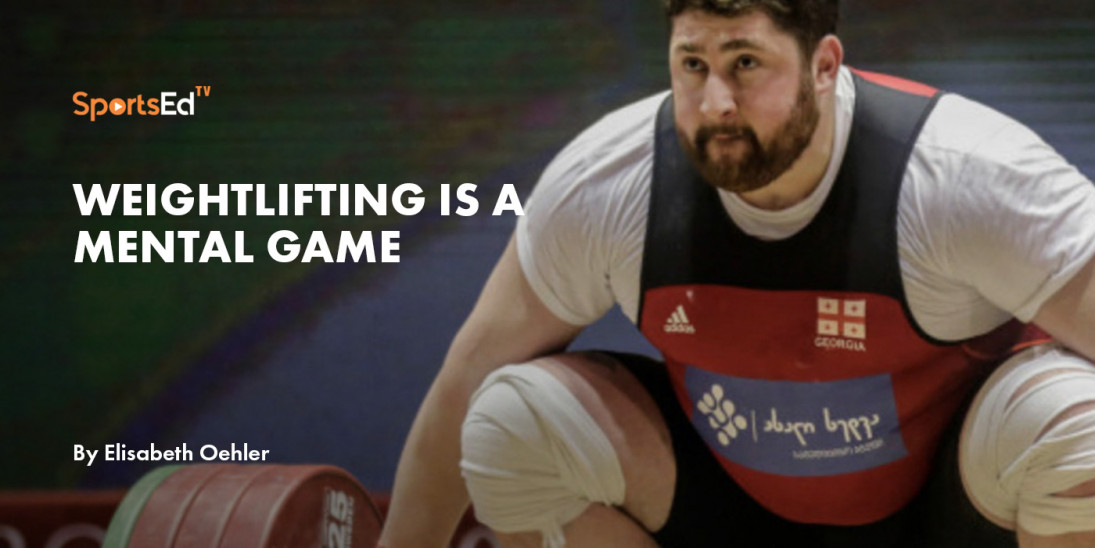
Germany’s Elisabeth Oehler, SportsEdTV Senior Contributor, presents great insights into the importance of numerous psychological characteristics necessary for success in weightlifting, particularly with juniors and youth athletes.
Matthias Steiner, Germany’s Beijing 2008 Olympic champion in men's weightlifting, emphasizes in numerous interviews that "his mental game" was the decisive factor in his greatest sporting success. But what is behind this performance factor and the ability to withstand enormous physical and mental stress in elite weightlifting?
I have always been fascinated by the mental side of weightlifting and especially what psychological sports skills an elite athlete needs to have in order to be successful internationally. Subsequently, the questions naturally arise as to whether there are psychological skills that promote or prevent an international career and to what degree the athlete's mental skills can be developed through the influence of the coach.
Research Findings
The main focus of weightlifting research has been biomechanics, technique models, and the physical demands of the snatch and clean & jerk. It is undisputed that performance in weightlifting, as in almost all other sports, is not only dependent on physical factors, but that the weightlifter's mental abilities also determine performance. So far there are only very vague and unsystematic approaches to answer these questions.
In particular, no research can currently be found on the development of mental skills specific to the demands of weightlifting at the youth and junior levels.
So many questions and not enough space to unfold them all, but I will give it a try and give readers a short summary of my own research.
The physical demands of training, the stress of competition, and other circumstances and factors of competitive weightlifting are a challenge for the athlete's mind and personality. In the field of psychological skills, self-efficacy and a high level of self-confidence are cited in the literature as the main factors determining performance in coping with the stresses of training and competition (Tucholke, 1984; Zawieja, 2013). According to Lippmann & Pagels (1993), elite weightlifters possess a will to win, a fighting spirit, a willingness to take risks, and a high mental mobilization capacity to lift heavy loads in training and competition. In addition, a weightlifter should be convinced of his or her own ability to perform, as well as possessing training discipline, toughness, determination and patience. Everett (2009) names self-confidence, as well as attention control and the ability to concentrate as performance-determining psychological factors in order to meet the physical and technical requirements of weightlifting.
Elemiri & Aly (2014) used Cherry's (2005) Mental Toughness Questionnaire (MTQ) to examine the differences in mental toughness between Egyptian weightlifters in high performance sports and those in recreational sports. The areas of competitive desire, focus, self-confidence, and resiliency were evaluated and compared with the control group. The high-performance male weightlifters had high levels of competitive focus and attention/concentration, whereas the female high-performance athletes had high levels of attention/concentration and resiliency compared to the control group of recreational lifters. In this study, the psychological performance factors were specified via the selection of the methodology in the form of the questionnaire and their degrees of expression were examined; no exploratory investigation of further psychological or even social resources took place. In summary, the theoretical basis for the performance factor mind and personality specifically in weightlifting is mainly based on assumptions and empirical studies of the psychosocial demands of weightlifting are hard to find.
A Different Approach
In my opinion it is crucial to find out more about the psychological demands of weightlifting when working in the elite environment and coaching young athletes. So, I have tried to find at least a few answers to my questions using a qualitative research design and by interviewing coaches who have developed elite weightlifters.
For the interviews, five national coaches (three former, two current) of the German Weightlifting Federation were selected. All have experience and expertise in the high-performance and youth/junior sport of weightlifting. The criteria for the selection of the interviewees were their participation and coaching of female or male lifters at the Olympic Games, European Championships, and World Championships, as well as the development of one or more junior athletes up to international competitions over several years.
All coaches interviewed were male, as there is no female coach at German Weightlifting who met the selection criteria for the sample. In addition, it should be noted that three of the national coaches interviewed only trained male athletes and only two also had or have women in their training groups. During the interviews we did not differentiate between male and female weightlifters.
First, it should be emphasized that all coaches consider a very high level of self-confidence and even an increased self-concept, especially in competition, to be essential for success in the high-performance sport of weightlifting. This resource for coping with the demands of sport is already evident in weightlifters in their appearance and the way they deal with the challenges of sporting competition.
In connection with this, the interviewees reported that top performance in individual sports like weightlifting requires high levels of self-discipline, self-reliance, and self-centeredness or positive egoism.
Furthermore, motivational resources such as a high degree of willpower, determination, and achievement motivation play a major role in weightlifting. The interviewees retrospectively mention these characteristics as conspicuous and necessary in elite weightlifters.
Closely related to determination are diligence and ambition, especially in relation to the demands of weightlifting training. The interviewees also mentioned "enjoying the grind and struggle" and "attentiveness to the quality of training" in this context. Furthermore, this includes not only training, but also a lifestyle that is appropriate for competitive sports and is justified by the special nature of weightlifting as a weight class sport.
In addition, weightlifters’ psychological and emotional stability in competition, a very high level of competitive orientation, a competitive mindset, and a fundamental ability to tolerate extreme stress are seen as essential for success at the elite level.
Some interviewees consider the examination of one's own learning and action processes through self-reflection and critical faculties to be important, especially in the context of experiences with victory and defeat.
Despite the emphasis on the necessity of an ego-orientation in the individual sport of weightlifting, all interviewees unanimously mention the prerequisite of the ability of elite athletes to work in a team with regard to the training group and the athlete-coach relationship. At the junior level, the results of the interviews show that, above all, diligence and a high level of comprehension are considered important in terms of learning the technique and developing motor skills.
The development of psychological skills is primarily shaped by the athlete's experiences. Above all, the right approach and training design play a central role in the development of a mature and self-confident athlete. The coach-athlete relationship is an essential factor in the development and promotion of mental sports skills.
Moving Forward
As we see from these results, coaches at the international level have a variety of requirements for the mental abilities of weightlifters. However, it also became clear that they could not specify or describe them in more detail. The terms personality traits and psychological skills get mixed up a lot. On the one hand, coaches assume that certain mental skills, especially self-confidence, must simply be fundamentally present. On the other hand, they have developed this in their athletes, especially at the junior level, by reflecting on experiences. From my point of view, the mental side of the sport of weightlifting needs much more research. Diagnostic tools should be used more often in the elite setting to shed light in this blurry area.
Above all, coaches need to integrate these psychological aspects much more consciously into program design and coaching. Especially important is the processing and reflection of experiences in victory and defeat, or after a good or bad training session. Frequently neglected are private or personal problems that have an influence on the sport, as well as other environmental factors.
My personal experience, especially with young athletes in weightlifting, concludes: Competition anxiety or nervousness can be counteracted early on through strategic competition planning and training interventions away from the training plan. A fundamental attention for personality development of young athletes in and through sports is essential to meet the psychological demands of weightlifting at the elite level.
Resources
Elemiri, A. & Aly, A. (2014). Mental toughness and its relationship to the achievement level of the weightlifters in Egypt. Turkish Journal of Sport and Exercise, 16(2), 63-69.
Everett, G. (2009). Olympic weightlifting: A complete guide for athletes & coaches (2nd ed.). Catalyst Athletics.
Lippmann, J. & Pagels, M. (1993). Gewichtheben – Rahmentrainingskonzeption fuÌr Kinder und Jugendliche im Leistungssport. In Landesportbund NRW (Hrsg.), Landesprogramm Ta- lentsuche und TalentfoÌrderung. MuÌhlheim: Schiborr. (German)
Tucholke, H. (1987). Die Struktur der sportlichen Leistung im Gewichtheben. Leipzig: DHfK. (German)
Zawieja, M., (2013). Leistungsreserve Hanteltraining: Handbuch des Gewichthebens fuÌr alle Sportarten. MuÌnster: Philippka-Sportverlag. (German)

